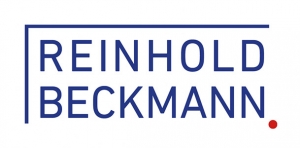What does that actually mean and what is it all about?
The Diem Association, formerly Libra, co-founded by Facebook, is pursuing the mission of developing an Internet of money. A global currency and financial infrastructure for billions of people. The European Central Bank and the Bank of China are also looking at introducing a digital currency to complement cash.
This development raises a host of legal questions. What is money? When is money a currency? Is digital money compatible with Union law as an alternative currency to euro cash?
What is money?
In the advanced civilizations of Asia, coinage made of gold, silver or copper was already being used as a means of payment long before Christ, before the introduction of paper money detached the value of money from its intrinsic value. With the further spread of paper money, a banking system emerged in Germany in which cash as book money was increasingly dematerialized. This led to the development of a cashless payment system. Current developments are now aimed at further increasing digitization and internationalization of the monetary system. Blockchain technology promises to enable faster payments at low fees and thus represents a new level of innovation in the monetary system.
In economic terms, money is an asset that serves as a medium of exchange, a unit of account and a store of value, whereby money is always a means of payment, but means of payment do not always necessarily have to be money.
When is money a currency?
In the abstract, a currency is the monetary system of one or more states, and in concrete terms it is a means of payment recognized by the state and determined by law. Against this background, it becomes clear that bitcoin, for example, is neither money nor currency, since there is already no central issuer. Only if the European Central Bank were to introduce a blockchain-based central bank money – such as an e-euro – would one have money in the legal sense and could represent an additional design form of a currency.
Is digital money compatible with Union law as an alternative currency to euro cash?
The future of payments
Under this definition, the development of private blockchain-based means of payment – such as Facebook’s planned Diem – would not strictly speaking be a currency in the legal sense. However, it has the potential to trigger profound changes in payments. These blockchain-based payment methods are very different in detail. The respective requirements in terms of different scopes and purposes of use differ significantly. For example, Facebook requires a Facebook account to use Diem, which significantly limits its use.
The European Parliament and Council Regulation “on Markets in Cryptoassets, and amending Directive (EU) 2019/1937” published in September 2020 describes a digital finance strategy, legislative proposals on cryptoassets and digital resilience for a competitive EU financial sector. The purpose of this is to ensure that interpretive authority is settled vis-à-vis both regulators and market developments as to how these new means of payment should be classified and valued. This can provide consumers with access to innovative financial products while ensuring consumer protection and financial stability. The regulation addresses issuers of cryptocurrencies, utility tokens, stablecoins as well as e-money tokens. Reference is made to providers such as PayPal or the European Payments Initiative of 16 major European banks, which aim to further develop cashless, digital payments.
Conclusion:
The future of money faces an extremely dynamic development that could usher in a turning point in the history of money. In my opinion, it would certainly be advisable for policymakers and the general public to approach these new developments with an open mind and not to block innovations here prematurely due to national egoisms. The future of money has only just begun.


